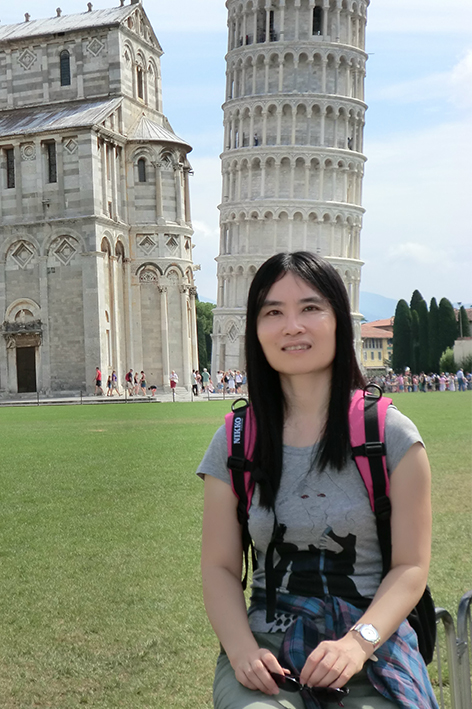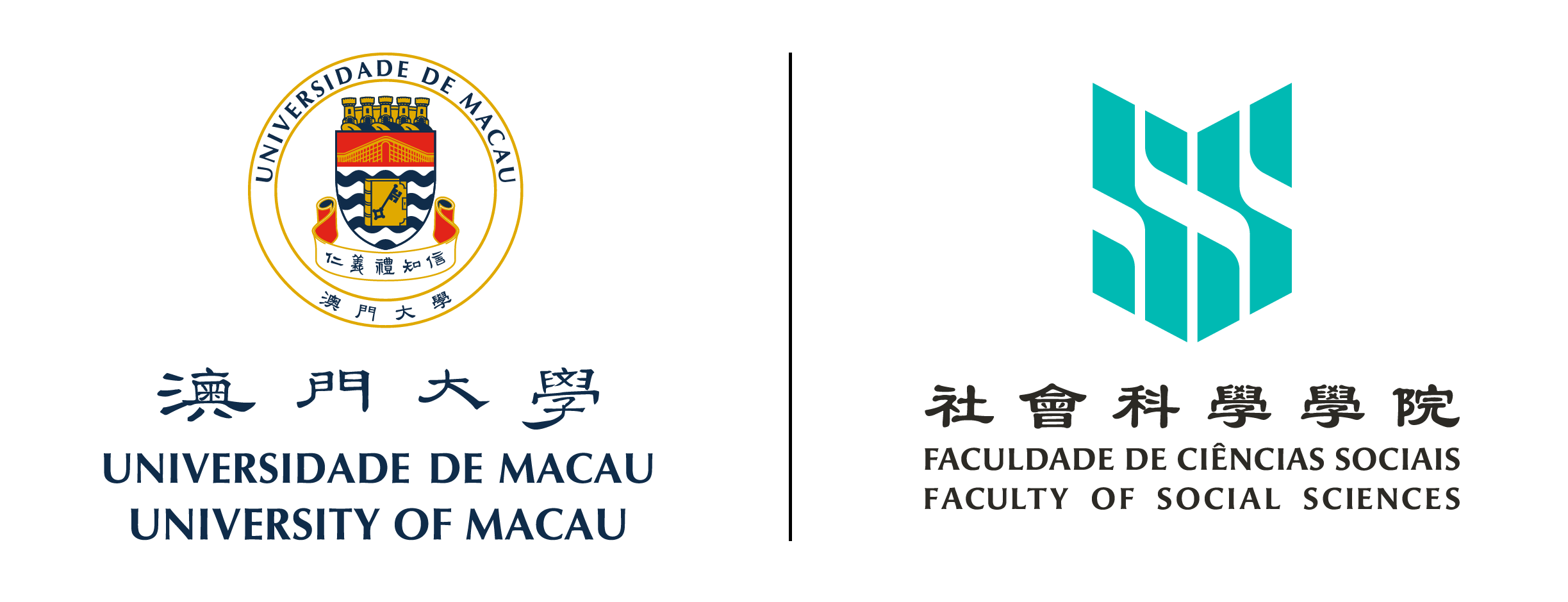eddiekou Kou Man Kit2022-11-22T17:22:49+08:00

Affiliation
Population Association of America
American Sociological Association
Eastern Sociological Society
hwang@um.edu.mo
Tel
+853 8822 8840
Office
Rm.3005, Humanities and Social Sciences Building (E21)
Department of Sociology, University of Macau
Taipa, Macau SAR, China
Consultation Hours
Wednesday (4pm to 5pm)
Thursday (4pm to 5pm)
or by appointment
Personal Website
Hongyu WANG 王紅宇
Associate Professor
Academic Qualifications
Ph.D in Department of Sociology, University of Pennsylvania.
M.A. in Department of Sociology, University of Nebraska-Lincoln.
B.A. in Library Science, Peking University 1995.
Research Interests
- The role of social capital and cultural capital in the creation of human capital among youth in China and Macau
- The study of civil society in China and Macau
- Gene-environmental interaction in predicting youth behavior
Publications
- Wang, Hongyu (2019). “The Effect of Political Ideology on Chinese College Students’ Attitudes towards Foreign and Domestic Affairs. China: An International Journal, 17(3):129-148.
- Wang, Hongyu, Tianji Cai, Xin Yanyu & Chen Baichao (2019). “The Effects of Previous and Current Instrumental Involvement and Expressive Involvement on Online Political Engagement among Chinese college students”. Sociological Inquiry, 89(2): 214-238.
- Wang, Hongyu and Tianji Cai (2018) “Media exposure and Chinese college students’ attitudes toward China’s maritime claims and disputes in the South and East China Seas”. Cogent Social Science, Volume 4 (1), 2018.
- Wang, Hongyu (2018). “Media exposure and national identity formation among youth in postcolonial Macau”. Issues & Studies, 53(4).
- Wang, Hongyu, Cai Tianji, Mo Yi and Shi Fayong (2018) “Traditional resources, Internet Resources and Youth Online Political Participation: The Resource Theory Revisited in the Chinese Context”. Chinese Sociological Review, 50(2), 115-136.
- Wang, Hongyu & Fayong Shi (2018). “Weibo use and political participation: the mechanism explaining the positive effect of Weibo use on online political participation among college students in contemporary China”. Information, Communication & Society, 21(4), 516-530.
- Cai, Tianji & Wang Hongyu (2018) “Comparing weighting methods for non-response in the HKPSSD Survey and the BCSPS”. Chinese Sociological Review, 50(1), 1-26,
- Wang, Hongyu & Tianji Cai (2017) “Parental involvement, adolescents’ self-determined learning and academic achievement in Urban China”. International Journal of Psychology, 52, 1: 58-66.
- Wang, Hongyu, Tianji Cai , Yi Mou & Fayong Shi (2017): Traditional Resources, Internet Resources, and Youth Online Political Participation: The Resource Theory Revisited in the Chinese Context, Chinese Sociological Review, DOI: 10.1080/21620555.2017.1341813.
- Wang, Hongyu & Fayong Shi (Forthcoming). “Weibo use and political participation: the mechanism explaining the positive effect of Weibo use on online political participation among college students in contemporary China”. Information, Communication & Society, http://dx.doi.org/10.1080/1369118X.2017.1289234.
- Cai, Tianji & Wang Hongyu (Forthcoming) “Comparing weighting methods for non-response in the HKPSSD Survey and the BCSPS”. Chinese Sociological Review, http://dx.doi.org/10.1080/21620555.2017.1311772.
- Guo Guang, et al. Wang, Hongyu“A natural experiment of peer influences on youth alcohol use” Social Science Research 52 (2015) 193–207.
- Guo Guang, et al. Wang, Hongyu“Peer Influence, Genetic Propensity, and Binge Drinking: A Natural Experiment and a Replication”. American Journal of Sociology, November 2015 issue (vol. 121, no. 3).
- Wang, Hongyu “The Relationship between Parenting Styles and Academic and Behavioral Adjustment in Urban Chinese Adolescents”. Chinese Sociological Review, 2014 Summer, vol. 46, no. 4, Summer 2014, pp. 19–40.
- Wang, Hongyu and Eva P.W. Hung (2012). “Associational participation and political involvement inMacau: A path analysis”. Issues and studies, V48: 191-212. .
- Wang, Hongyu ( 2011-2012 Winter). “The Effects of Cultural Capital on Educational Aspirations among Adolescents in Macau”. Chinese Sociological Review, V44, 52-75.
- Wang, Hongyu, Miosi Kong, Wenjing Shan and SouKuanVong (2010). “The Effects of Doing Part-time jobs on College Student Academic Performance and Social Life in a Chinese Society.” Journal of Education and Work 23: 79-94.
- Guo, Guang, Tianji Cai, Rui Guo, Hongyu Wang and Kathleen M. Harris. (2010). “The Dopamine Transporter Gene, a Spectrum of Most Common Risky Behaviors, and the Legal Status of the Behaviors.” PLoS ONE 5(2): e9352. doi:10.1371/journal.pone.0009352.
- Wang, Hongyu and Grace Kao (2007). “Does Higher Socioeconomic Status Increase Contact between Minorities and Whites An Examination of International Romantic Relationships among Adolescents.” Social Science Quarterly 88: 146-164.
- Wang, Hongyu, Grace and Kara Joyner (2006). “Stability of Interracial and Intraracial Romantic Relationships.” Social Science Research 35: 435-453.
- Wang, Hongyu, Furstenberg, Frank F., Waller and Maureen R. (2003). “The Well-Being Of California’s Children.” Public Policy Institute of California.
- Wang, Hongyu and Paul R. Amato (2000). “Predictors of Divorce Adjustment: Stressor Resources, and Definitions.” Journal of Marriage and the Family 62: 655-668.

